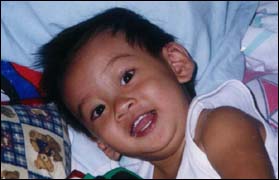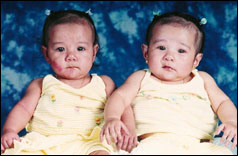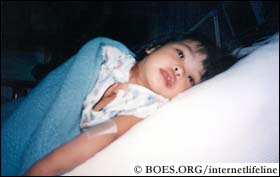|
|
 Article 23
Article 231. States Parties recognize that a mentally or physically disabled child should enjoy a full and decent life, in conditions which ensure dignity, promote self-reliance, and facilitate the child's active participation in the community. 2. States Parties recognize the right of the disabled child to special care and shall encourage and ensure the extension, subject to available resources, to the eligible child and those responsible for his or her care, of assistance for which application is made and which is appropriate to the child's condition and to the circumstances of the parents or others caring for the child. 3. Recognizing the special needs of a disabled child, assistance extended in accordance with paragraph 2 of the present article shall be provided free of charge, whenever possible, taking into account the financial resources of the parents or others caring for the child, and shall be designed to ensure that the disabled child has effective access to and receives education, training, health care services, rehabilitation services, preparation for employment and recreation opportunities in a manner conducive to the child's achieving the fullest possible social integration and individual development, including his or her cultural and spiritual development. 4. States Parties shall promote, in the spirit of international co-operation, the exchange of appropriate information in the field of preventive health care and of medical, psychological and functional treatment of disabled children, including dissemination of and access to information concerning methods of rehabilitation, education and vocational services, with the aim of enabling States Parties to improve their capabilities and skills and to widen their experience in these areas. In this regard, particular account shall be taken of the needs of developing countries.
Article 24 2. States Parties shall pursue full implementation of this right and, in particular, shall take appropriate measures: (a) To diminish infant and child mortality; (b) To ensure the provision of necessary medical assistance and health care to all children with emphasis on the development of primary health care; (c) To combat disease and malnutrition including within the framework of primary health care, through, inter alia, the application of readily available technology and through the provision of adequate nutritious foods and clean drinking water, taking into consideration the dangers and risks of environmental pollution; (d) To ensure appropriate pre-natal and post-natal health care for mothers; (e) To ensure that all segments of society, in particular parents and children, are informed, have access to education and are supported in the use of basic knowledge of child health and nutrition, the advantages of breast-feeding, hygiene and environmental sanitation and the prevention of accidents; (f) To develop preventive health care, guidance for parents, and family planning education and services. 3. States Parties shall take all effective and appropriate measures with a view to abolishing traditional practices prejudicial to the health of children. 4. States Parties undertake to promote and encourage international co-operation with a view to achieving progressively the full realization of the right recognized in the present article. In this regard, particular account shall be taken of the needs of developing countries.
Article 25
States Parties recognize the important function performed by the mass media and shall ensure that the child has access to information and material from a diversity of national and international sources, especially those aimed at the promotion of his or her social, spiritual and moral well-being and physical and mental health. To this end, States Parties shall: (a) Encourage the mass media to disseminate information and material of social and cultural benefit to the child and in accordance with the spirit of article 29;
(c) Encourage the production and dissemination of children's books; (d) Encourage the mass media to have particular regard to the linguistic needs of the child who belongs to a minority group or who is indigenous;
(e) Encourage the development of appropriate guidelines for the protection of
the child from information and material injurious to his or her well-being, bearing
in mind the provisions of articles 13 and 18.
The Convention on the Rights of the Child by United Nations
|
|||||||||

